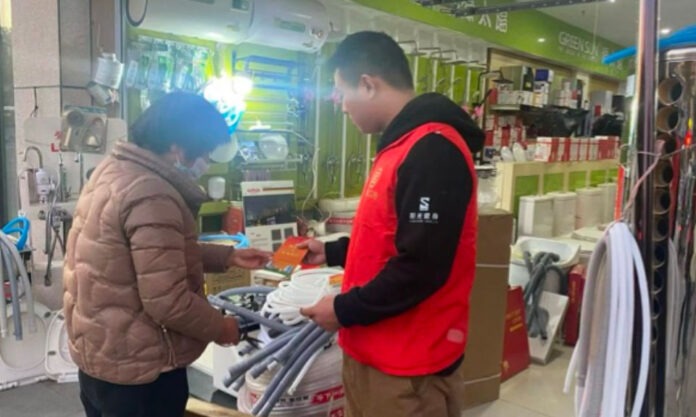With the convenience and prevalence of mobile payments in China, so too many merchants are not keen on seeing hard currency. But given it remains legal tender, vendors are obliged by law to accept it. One bank has been working on reminding them of this.
Taizhou in Jiangsu was the city which saw the recent exercise in fiscal awareness, where ICBC branches across that jurisdiction were called to action.
Inside branches, promotional materials were on prominent display, while videos were played through the touch-integrated screens which are a feature of the various automated-banking machines. Promotional leaflets were also handed out to customers waiting to conduct their business.
Meanwhile, corporate customers were elsewhere more or less coerced by ICBC staff in to signing a “Letter of Commitment Not to Refuse to Accept Cash”, guiding them to consciously abide by laws and regulations as a means to maintain the order of renminbi cash circulation.
The don’t-refuse-cash initiative was then also spread online, with the Bank’s official WeChat account, WeChat groups and websites, together with its Weibo and other multimedia platforms, also pushing out the message.
Then it was time to get out to pointed end of the stick, to the real world and the kinds of places where cash is most likely to be refused.
As such, ICBC staff visited merchants in key business districts, farmers’ markets, car parks, supermarkets, rural areas and elsewhere, in order to investigate and understand their cash needs. Also made available was the exchange of small-denomination or damaged banknotes.
Meanwhile, as the Yangtze Evening News reports, staff used easy-to-understand language to explain why the illegal act of refusing to accept cash should be rectified.
But perhaps most telling of all was the ICBC’s decision to also introduce to people the various types of physical renminbi in circulation, indicating cashless payments have become so ubiquitous in China that many now need to be told what a “Chairman Mao” actually looks like.









